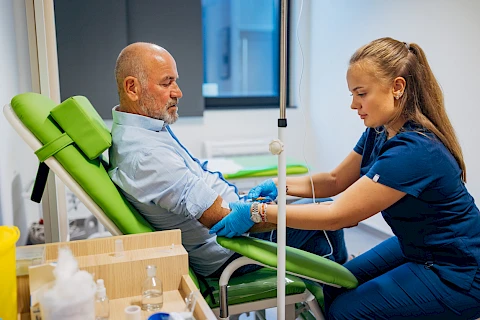
January is National Blood Donor Month, a time to celebrate blood donors' role in healthcare. Blood donation saves lives, providing critical support during surgeries, treatments, and emergencies. As we honor this month, we must recognize how seniors and their families can be involved in this life-saving cause. Seniors hold a unique position in our community, with the potential to significantly impact blood donation efforts, as Senior Helpers Milford-Franklin will outline.
What to Know About Blood Donation
Blood donation involves giving a pint of blood, which is then used to help those in need. Each donation can save up to three lives, making it a powerful way to give back to the community. A steady blood supply is essential for hospitals and clinics to function efficiently, and ensure that patients receive the care they need. Yet, blood supplies often run low, making regular donations all the more vital.
Eligibility Criteria for Seniors
Many seniors might wonder if they are eligible to donate blood. The good news is that age alone is not a barrier. Many seniors are healthy enough to be donors. However, certain health considerations apply.
- Seniors must be in good health, without any infections or illnesses, and weigh at least 110 pounds.
- Some medications and medical conditions may affect eligibility. It's always best to check with a doctor or the donation center to be sure.
- Common misconceptions suggest seniors can't donate, but as long as they meet health requirements, they are often welcome donors.
Eligibility can be easily determined through a screening process at the donation center. Medical professionals can provide clear guidance, ensuring that every donation is safe.
Health Benefits of Donating Blood for Seniors
Beyond helping others, donating blood can offer several benefits for seniors themselves. Physically, donating can improve heart health by reducing iron levels. It may even boost overall well-being by activating the body's production of new cells.
Emotionally, donating blood can provide a sense of purpose and community connection. Many senior donors report feeling uplifted by knowing that their contribution is making a difference, and hearing stories from other senior donors can be inspiring.
Supporting Blood Donation Without Donating
Even if donating blood isn't an option, seniors have many ways to support the cause. Volunteering at blood drives is a great way to help with organization, registration, and post-donation care. Advocacy is another powerful tool.
Seniors can share their experiences and encourage others to donate by talking about the importance of blood donation with friends and family and using social media to spread the word. For those who want to make a bigger impact, organizing a blood drive in their area can be a rewarding way to help increase the local blood supply.
Local Blood Donation Opportunities
For those living near Milford, there are numerous opportunities to get involved. Local blood banks and hospitals offer regular donation days. Check their websites or contact them directly to find dates and times. Participating in local events helps ensure the community's blood supply remains strong.
Discover Compassionate Senior Care Services
National Blood Donor Month is a time to consider the role seniors can play in supporting blood donation. Whether by donating blood, volunteering, or spreading the word, seniors have the power to make a substantial impact. Every bit of involvement helps save lives and strengthens the community's well-being.
For more information on how seniors can get involved, whether through donating or other means, contact us at Senior Helpers Milford-Franklin. We proudly provide senior care services in and around Franklin, Stoughton, Webster, Foxboro, and Sharon.